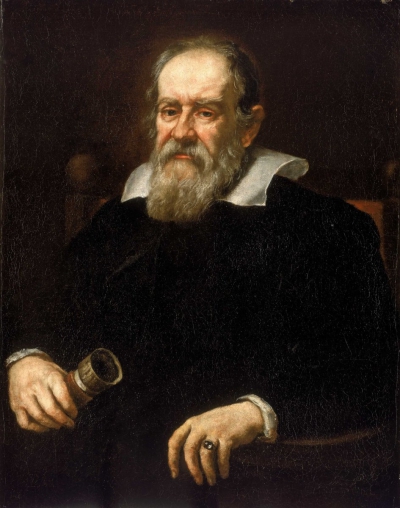The Dialogue Concerning the Two Chief World Systems (Dialogo sopra i due massimi sistemi del mondo) is a 1632 Italian-language book by Galileo Galilei comparing the Copernican system with the traditional Ptolemaic system. It was translated into Latin as Systema cosmicum (English: Cosmic System) in 1635 by Matthias Bernegger. The book was dedicated to Galileo's patron, Ferdinando II de' Medici, Grand Duke of Tuscany, who received the first printed copy on February 22, 1632.In the Copernican system, the Earth and other planets orbit the Sun, while in the Ptolemaic system, everything in the Universe circles around the Earth. The Dialogue was published in Florence under a formal license from the Inquisition. In 1633, Galileo was found to be "vehemently suspect of heresy" based on the book, which was then placed on the Index of Forbidden Books, from which it was not removed until 1835 (after the theories it discussed had been permitted in print in 1822). In an action that was not announced at the time, the publication of anything else he had written or ever might write was also banned in Catholic countries.
Galileo di Vincenzo Bonaiuti de' Galilei ( GAL-il-AY-oh GAL-il-AY-ee, -EE-oh -, Italian: [ɡaliˈlɛːo ɡaliˈlɛi]; 15 February 1564 – 8 January 1642), commonly referred to as Galileo, was an Italian astronomer, physicist and engineer, sometimes described as a polymath, from the city of Pisa, then part of the Duchy of Florence. Galileo has been called the "father" of observational astronomy, modern physics, the scientific method, and modern science.Galileo studied speed and velocity, gravity and free fall, the principle of relativity, inertia, projectile motion and also worked in applied science and technology, describing the properties of pendulums and "hydrostatic balances". He invented the thermoscope and various military compasses, and used the telescope for scientific observations of celestial objects. His contributions to observational astronomy include telescopic confirmation of the phases of Venus, observation of the four largest satellites of Jupiter, observation of Saturn's rings, and analysis of lunar craters and sunspots.
Galileo's championing of Copernican heliocentrism (Earth rotating daily and revolving around the sun) was met with opposition from within the Catholic Church and from some astronomers. The matter was investigated by the Roman Inquisition in 1615, which concluded that heliocentrism was foolish, absurd, and heretical since it contradicted Holy Scripture.Galileo later defended his views in Dialogue Concerning the Two Chief World Systems (1632), which appeared to attack Pope Urban VIII and thus alienated both the Pope and the Jesuits, who had both supported Galileo up until this point. He was tried by the Inquisition, found "vehemently suspect of heresy", and forced to recant. He spent the rest of his life under house arrest. During this time, he wrote Two New Sciences (1638), primarily concerning kinematics and the strength of materials, summarizing work he had done around forty years earlier.

 English
English  español
español  français
français  português
português  русский
русский  العربية
العربية  简体中文
简体中文 
